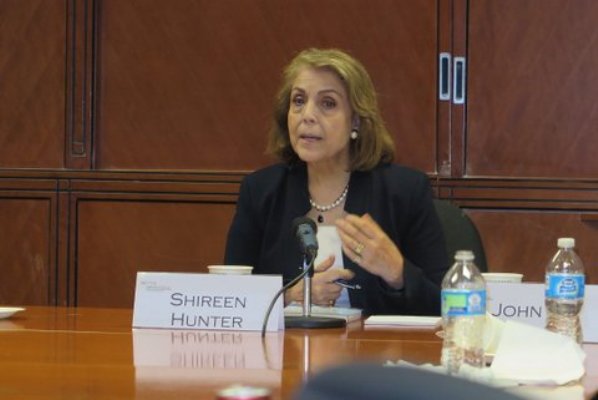Iran's missiles program is not covered by JCPOA: Shireen Hunter

TEHRAN - Shireen Tahmaasb Hunter, a professor of political science at Georgetown University, tells the Tehran Times that that “It is generally understood that Iran's missiles program is not covered by the JCPOA. She adds But America, and key European countries such as the UK and France, believe that separate negotiations should begin regarding Iran's missile program aimed at answering the concerns of Iran's regional neighbors and other states.”
Professor Hunter also says that “Ultimately, the goal of all this maneuvering is to force Iran to abandon its opposition to American policies in the region.”
Following is the text the interview:
Q: U.S. President Donald Trump approved the Iran nuclear deal only one more time before abandoning it if it is not changed. What are the changes that Trump emphasize on them?
A: In view of the fact that, since the coming to power of the Trump Administration, the United States has been stating that, without major changes, America will exit the JCPOA, it is quite likely that, unless some breakthrough occurs in Iran's relations with the U.S., which is unlikely, Trump will abandon the JCPOA. But, some factors, such as European lobbying, and congressional resistance to such action could force President Trump to change his mind, and again renew the suspension of sanctions against Iran.
Q: The White House wants a deal with EU signatories to make restrictions on Iran's uranium enrichment permanent. Under the current deal they are set to expire in 2025. Do you think EU will accept this condition? If so, Will Iran accept it?
A: A major criticism of Trump and other detractors of the JCPOA has been that it does not limit Iran's ability to resume its nuclear program beyond 2025. This close, they insist, defeats the purpose of the JCPOA that is to prevent Iran from acquiring the capacity to produce a nuclear device. Thus, Trump wants the restrictions on Iran's nuclear activities to remain indefinitely. This condition, of course would be difficult for Iran to accept, and has the potential to totally destroy the JCPOA.
Q: Mr Trump also wants Iran's ballistic missile programme to be addressed. Iran frequently has emphasized that ballistic missile is not related to JCPOA and will not negotiated about it. According to this, do you think that this condition meaning the end for JCPOA?
A: Part of the JCPOA's purpose was to limit Iran's potential capacity to threaten the security of its neighbors and other states, especially Israel. Now the United States is arguing that Iran's missile program is also a threat to regional state. Therefore, he argues it should be limited. It is generally understood that Iran's missiles program is not covered by the JCPOA. But America, and key European countries such as the UK and France, believe that separate negotiations should begin regarding Iran's missile program aimed at answering the concerns of Iran's regional neighbors and other states.
Ultimately, the goal of all this maneuvering is to force Iran to abandon its opposition to American policies in the region, and to behave in a more conciliatory manner towards regional states, including Israel.
Leave a Comment